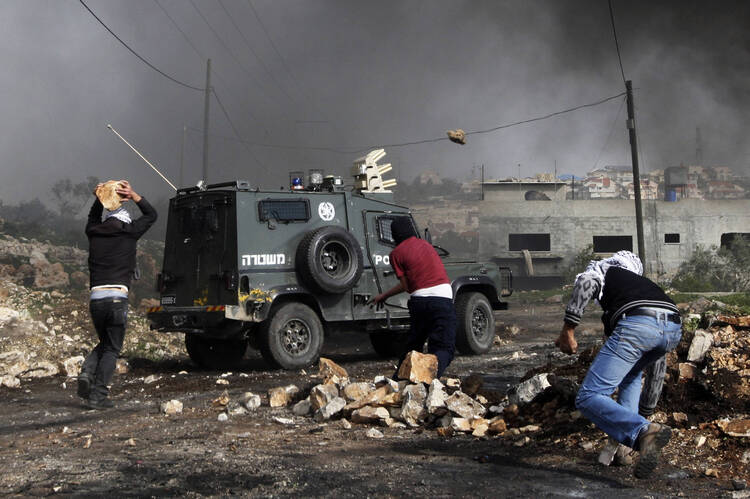Recently Ethan Bonner, the longtime Israel correspondent for the New York Times, who also had a son in the Israeli army, returned to his old turf for a wedding celebration in Tel Aviv and was struck by how the old discussion about “Israel in crisis” had disappeared. Everyone sang and danced as if the country had no problems and no one mentioned the Palestinians. Meanwhile Secretary of State John Kerry has flown back to Israel again and again as if he was convinced that peace might be at hand, while his critics murmured that he was wasting his time. Shouldn’t he be in Egypt or Syria which have real problems?
Israel, says Bonner, “has never been richer, safer, more culturally productive or more dynamic,” but it is “cut off from its region which despises it perhaps more than ever.” ("What Mideast Crisis? Israelis Have Moved On") Meanwhile Yair Lapid, the candidate who got elected because he pretended to offer something different, says he would not change settlement policy and never allow Palestine to have part of Jerusalem for its capital. Bonner concludes that while some have compared Israel to the deck of the Titanic, that may not be right, “but you can’t help wondering about that next iceberg.”
Almost as if in answer to Bonner, Gideon Levy, the highly respected columnist for Haaretz, Israel’s independent and fearless newspaper, took a look around the Middle East and predicted that what has been happening in Egypt will eventually, inevitably, happen in Israel ("One day, Ramallah will rise up"). The crowds will form in Ramallah’s Manara Square and begin to march. The way the Egyptians are struggling over their regime in the eyes of the Palestinians “can only inspire awe.” To the north the Syrians are doing the same thing, but more cruelly. He asks, “Could it be that only the Palestinian people will forever bow their heads, submissively and obediently, to the Israeli jackboot? Don’t make the minister of history laugh.”
The regimes which the other Arab countries have rebelled against, he says, are less brutal and less corrupt than Israel. As he sees it, the masses will flood the Unknown Soldier’s Square in Gaza, push into the Police Square in Hebron and storm all the checkpoints along their way. “The masses will rise up against the settlements and checkpoints, against the army barracks and the prisons. And at that point the Israeli Arabs will no longer stand idly by. The army will try to restore order, “but the new order will assert its control over the army as well.”
All evil regimes fall, he says: some in terrible bloodshed, others like a tall tree whose trunk as rotted. “It will happen here, too; there is no other way.”
The tragic irony of all this is that there has long been a peace plan which the whole world, from the United States to Europe and the other Arab states, has long offered but which Israel rejects: return to the original 1967 boundaries, but make some land swaps that that would allow some major settlements to stay, and grant enough of Jerusalem so the Palestinians could have a capital; but the Israeli regime has poured its resources into expanding settlements, above all around Jerusalem, to set up obstacles. In the face of world opinion, the Israelis imagine that just by being obstinate they can have it all. They may be right. But they should pick up their own newspaper. Read Gideon Levy, “As with other unjust and evil regimes, which are destined to fall, this regime will also fall —it’s just not clear when and how . . . there is no other way.”








